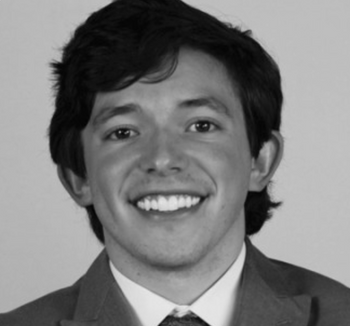Prez ‘surprised’ and ‘shocked’ that UF must allow free speech
Faculty members and administrators at the University of Florida are struggling to come to grips with the public school's First Amendment obligations ahead of a visit by white nationalist Richard Spencer.
Later, at a panel discussing the First Amendment, UF professor Kenneth Nunn declared that he doesn’t “think there is any such thing as free speech,” that “words can and do hurt,” and that UF should “confront hate speech.”
In an email to the school community last week, UF President Kent Fuchs said he was "surprised and even shocked to learn that UF is required by law to allow Mr. Spencer to speak his racist views on our campus."
In an email to the student body last week, University of Florida President Kent Fuchs expressed befuddlement at his recent discovery that the public university must allow free speech.
“If you are like me, I expect you are surprised and even shocked to learn that UF is required by law to allow Mr. Spencer to speak his racist views on our campus,” Fuchs wrote in a statement alerting students that Richard Spencer, a prominent white nationalist, will be visiting campus on October 19.
Spencer was originally scheduled to speak in September, and Fuchs initially defended the event under university regulation 2.004 which states that “non-university groups, organizations, and persons may rent space on campus, provided they cover rental expenses and security costs like all other third-party renters.” Several days later, however, Fuchs announced that the event would be cancelled due to safety concerns.
[RELATED: Florida prof tries to hide identity while protesting ‘hate speech’]
After being threatened with a federal lawsuit, however, UF backed down and agreed to host Spencer in October, prompting Fuchs to implore the school community to simply deny Spencer the attention he seeks, rather than trying to shut down the speech.
“First, do not provide Mr. Spencer and his followers the spotlight they are seeking,” Fuchs instructed, assuring readers that “by shunning him and his followers we will block his attempt for further visibility.”
Simultaneously, though, he also said the school should “not let Mr. Spencer’s message of hate and racism go unchallenged,” urging students and faculty members to attend a series of events crafted in response to the controversy, which began with an October 11 panel titled, “A Conversation on the First Amendment.”
[RELATED: STUDY: Majority of college students hostile to free speech]
During that conversation, UF Law Professor Kenneth Nunn declared himself a “First Amendment radical,” asserting that he doesn’t “think there is any such thing as free speech,” that “words can and do hurt,” and that UF should take action to “confront hate speech” beyond merely promoting a "marketplace of ideas."
Nunn also asserted that hateful speech can inflict “significant harms” on those targeted by it, including physical harms.
“[People] become depressed, people use drugs, people have damage to their self image. Sometimes as a consequence of that they wind up committing suicide,” he told the audience. “There’s poor performance in school, poor performance in work, people get high blood pressure, people suffer from stress. And so we have some significant harms that come from the use of speech, particularly speech when you talk about people and you say hurtful and hateful things as a consequence of that.”
Later on in the panel, Nunn alleged that not everyone has the same amount of free speech in the United States, saying, “people who have low status and are poor are going to pay a higher price” for unpopular speech.
“No speech is free,” he declared. “Tell Colin Kaepernick that speech is free. Tell Jemele Hill. Tell all of those NFL players that they’ve been told they’re SOBs or need to get fired, that speech is free.”
[RELATED: UCF ‘diversity chair’ resigns over anti-conservative remarks]
"I was disappointed to see that the panelists were discussing the First Amendment as if free speech is a conditional right depending on the situation,” student Alison Wilfong, who attended the event, told Campus Reform. “Although Nunn expressed legitimate concern about people’s feelings, it's important to remember that feelings do not come before Americans' constitutional rights. The right to have your feelings protected is not a legitimate right that supersedes the right to express yourself freely.”
Wilfong even pressed Nunn on the issue during the event, asking him to specifically define “hate speech,” to which Nunn responded that “it is a very difficult issue to define,” but that “the mere fact that we’re talking about a speech that’s hard to define doesn’t mean it can’t be done.”
His answer did not satisfy Wilfong, who pointed out that any attempt to define hate speech would almost certainly involve subjective standards.
“When you give a group of individuals the power to subjectively define the extent of our rights, you will be limited in only saying what they subjectively deem to be acceptable,” she noted. “There is no absolute standard for what is offensive and if we create subjective standards we will prevent anyone from saying anything because the moment someone dislikes what you say, one can simply censor them by deeming the speech offensive.”
Campus Reform reached out to Nunn for elaboration on the remarks he made during the free speech panel, but did not receive a response in time for publication.
Follow the author of this article on Twitter: @eduneret

